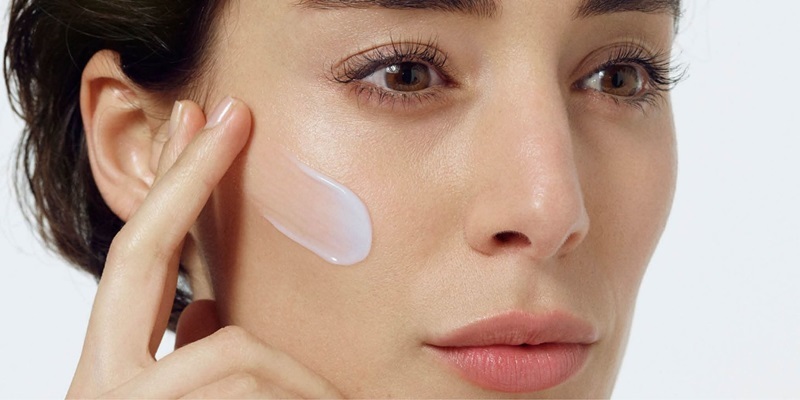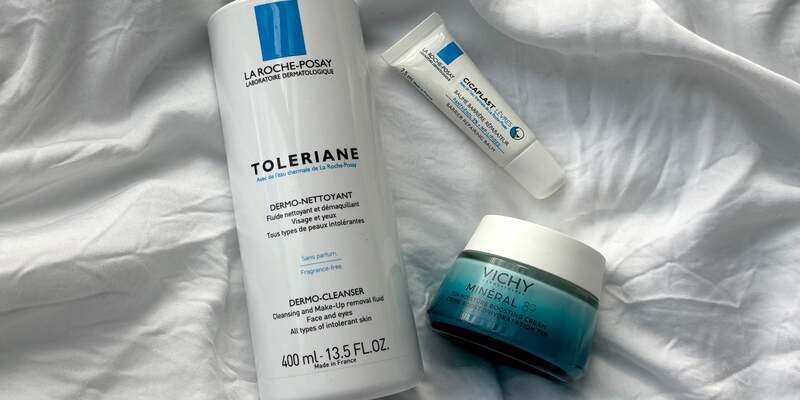Home
Beauty
Best Hydrating Skincare Products For Dry Skin
Dry skin can often feel like a relentless adversary, leading to discomfort and various skincare challenges. Individuals facing this issue frequently experience flakiness, irritation, and even cracking, highlighting the critical importance of hydration in achieving healthy skin. This article will guide you through the pivotal role of hydration, delve into the key ingredients necessary for nourishing and replenishing your skin, and present a curated list of outstanding hydrating products specifically designed to combat dryness. We aim to equip you with a thorough understanding of keeping your skin moisturized and radiant, ensuring you have the best tools to tackle dry skin effectively.
Dry skin can often feel like a relentless adversary, leading to discomfort and various skincare challenges. Individuals facing this issue frequently experience flakiness, irritation, and even cracking, highlighting the critical importance of hydration in achieving healthy skin. This article will guide you through the pivotal role of hydration, delve into the key ingredients necessary for nourishing and replenishing your skin, and present a curated list of outstanding hydrating products specifically designed to combat dryness. We aim to equip you with a thorough understanding of keeping your skin moisturized and radiant, ensuring you have the best tools to tackle dry skin effectively.

Understanding Dry Skin
Dry skin, or xerosis, is a condition marked by moisture deficiency in the skin's outer layer. This lack of hydration leads to rough, flaky, and often itchy skin. The factors contributing to dry skin are numerous and include environmental influences such as low humidity levels, harsh weather conditions, and excessive exposure to sunlight. Lifestyle choices also exacerbate skin dryness; hot showers and drying soaps can strip skin of its natural moisture. Genetic predisposition also plays a significant role—individuals with a family history of dry skin are often more vulnerable.
According to dermatologists, it's essential to understand the broader context of dry skin. One expert notes, "Dry skin is a prevalent condition, affecting nearly 40% of adults at some point in their lives." Seasonal changes, particularly during the winter, can exacerbate moisture loss, while neglecting proper skincare practices like regular moisturizing can further compromise the skin's natural lipid barrier. Research indicates that approximately 75% of individuals report experiencing dry skin during colder months. Understanding these contributing factors is vital for effective management and treatment, paving the way for improved hydration practices.
Key Ingredients To Look For
When searching for adequate hydration in skincare products, you should prioritize three-star ingredients: Hyaluronic Acid, Glycerin, and Ceramides. Each plays a distinct yet vital role in alleviating dry skin, making them indispensable for any hydration-focused skincare routine.
Hyaluronic Acid is a renowned humectant, famed for its remarkable ability to hold up to 1,000 times its weight in water. When applied to the skin, it draws moisture from the surrounding environment, delivering intense hydration that leaves your skin plump and radiant. This property is especially advantageous for dry skin that desperately seeks moisture replenishment.
Glycerin, another powerful humectant, operates similarly to Hyaluronic Acid by attracting water to the skin, enhancing its texture and softness. Additionally, Glycerin is lauded for its capacity to create a protective layer over the skin, mitigating moisture loss and ensuring prolonged hydration.
Finally, Ceramides are lipids that restore the skin's natural barrier, which is essential for locking in moisture. By reinforcing this barrier, Ceramides play a critical role in defending against environmental stressors, helping to maintain a hydrated complexion throughout the day.
While shopping for skincare products, scan labels for these ingredients. Ideally, they should appear towards the top of the list, indicating a significant concentration. If you have sensitive skin, looking for formulations labelled as hypoallergenic or non-comedogenic is prudent. Equipped with this knowledge, you will be well on your way to achieving healthier, hydrated skin!
Top Hydrating Skincare Products For Dry Skin
To aid in your quest for a glowing, hydrated complexion, we’ve compiled a selection of the top five moisturizing products known for their effectiveness in combating dry skin.
1. Cerave Moisturizing Cream
CeraVe Moisturizing Cream has become a beloved skincare staple designed to deliver long-lasting hydration. Enriched with essential ceramides and hyaluronic acid, this unique formula restores the skin's protective barrier while sealing in moisture. Users consistently report a noticeable decrease in dryness within just a few days of regular use, thanks to this rich yet fast-absorbing cream that leaves no greasy residue, making it suitable for both face and body. Key Ingredients: Ceramides, Hyaluronic Acid. Pros and Cons: Pros include affordability, a non-comedogenic formula, and suitability for sensitive skin. Some users may find the texture heavy.
2. Neutrogena Hydro Boost Water Gel
Neutrogena's Hydro Boost Water Gel is a lightweight gel cream that infuses dry skin with vital hydration. Formulated with hyaluronic acid, this innovative product absorbs swiftly into the skin, providing a revitalizing moisture boost. Ideal for everyday use, it leaves the skin feeling soft and supple without any oily residue, making it a favourite for those who prefer a lighter feel. Key Ingredients: Hyaluronic Acid, Glycerin. Pros and Cons: Pros encompass its lightweight texture and fast absorption. However, it may not adequately cater to individuals with dehydrated skin requiring more intensive moisture.
3. La Roche-Posay Hydraphase Intense
La Roche-Posay Hydraphase Intense is expertly crafted to provide intense hydration for dehydrated skin. This cream features a water-gel texture that effectively replenishes moisture while ensuring long-lasting effects, making it suitable for sensitive skin types. Users appreciate its soothing properties, complemented by a unique thermal spring water ingredient that refreshes the skin without clogging pores. Key Ingredients: Glycerin, Thermal Spring Water. Pros and Cons: Users commend its calming effects and compatibility with sensitive skin, although it may carry a higher price point when compared to other options.

4. First Aid Beauty Ultra Repair Cream
First Aid Beauty Ultra Repair Cream is an ultra-rich moisturizer that offers immediate relief and long-term hydration for dry skin. Dermatologist-tested, it's particularly beneficial for individuals with eczema and dehydrated patches. Its whipped texture allows it to absorb quickly, providing lasting moisture without any greasiness. The formulation is known for calming redness and irritation, contributing to a healthier skin barrier. Key Ingredients: Colloidal Oatmeal, Shea Butter. Pros and Cons: Pros include effectiveness for severe dryness and compatibility with all skin types. The downside may be its slightly elevated cost.
5. Eucerin Advanced Repair Cream
Eucerin Advanced Repair Cream is specifically formulated to deliver 48 hours of moisture relief, addressing dry and rough skin concerns. This thick, non-greasy formula penetrates deeply to renew and repair the skin’s moisture barrier, promoting lasting softness. Ideal for daily use on the body, it is fragrance-free and gentle enough for sensitive skin, ensuring hydration without irritation. Key Ingredients: Urea, Ceramides. Pros and Cons: Pros include its enduring hydration effect and suitability for sensitive skin. Some users may find it feels too heavy during warmer seasons.
These top hydrating skincare products effectively cater to the needs of dry skin, contributing to a smoother and healthier complexion over time.
Tips For Maintaining Hydration
A consistent skincare regimen is essential to keeping dry skin looking its best. Start each day using a gentle cleanser to eliminate impurities without stripping the skin of its natural oils. Pair this with a nourishing toner to balance pH levels, preparing the skin to absorb moisture effectively. A rich, hydrating moisturizer with beneficial ingredients like hyaluronic acid or ceramides is crucial for locking in hydration. Consider introducing a hydrating serum before your moisturizer to enhance your routine for an added moisture boost.
Moreover, dietary choices significantly impact overall skin health. Aim for a balanced intake rich in omega-3 fatty acids, which can be found in foods such as fish, walnuts, and flaxseeds, as these nutrients bolster skin elasticity. Hydration also begins from within; thus, ensuring adequate water consumption throughout the day is key to maintaining skin moisture levels. Drinking at least eight glasses of water daily can yield noticeable improvements in your skin.
Incorporating simple habits into your daily life can further improve skin hydration. For instance, using a humidifier at home—especially during dry months—will help preserve moisture levels in your environment. When bathing, opt for warm (not hot) water and avoid harsh soaps or products that may aggravate dryness. Lastly, regularly apply sunscreen to shield your skin from sun damage that can exacerbate moisture loss.
Embrace Hydration For Healthy Skin
Proper hydration is vital for skin health, particularly for those struggling with dryness. Adequate hydration safeguards the skin's moisture barrier and creates a more radiant complexion.










